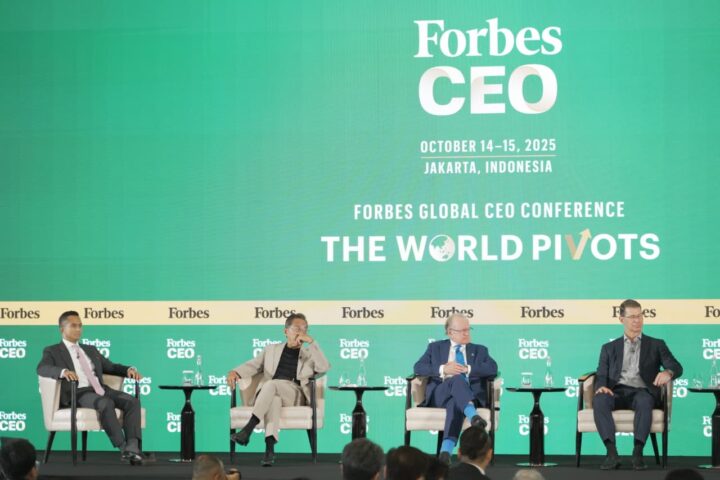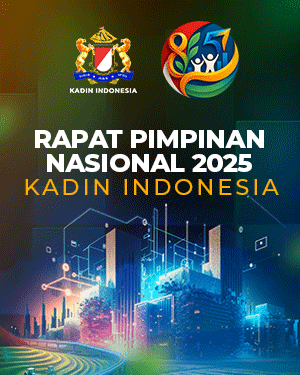
Jakarta – Chairman of the Indonesian Chamber of Commerce and Industry (Kadin), Anindya Novyan Bakrie, emphasized the importance of swift adaptation by businesses in adjusting to global supply chains and expanding international trade markets.
Anindya, popularly known as Anin, delivered this message during a panel session titled “New Directions for the Global Economy” at the Forbes Global CEO Conference themed “The World Pivots”, held at The St. Regis Hotel Jakarta on Tuesday (October 14, 2025).
“What’s both interesting and surprising is how quickly trade players have recalibrated the way they manage their supply chains,” said Anin.
He cited the evolving trade relationship between Indonesia and the United States, which continues to grow amid efforts by both countries to balance their trade relations. Currently, bilateral trade between Indonesia and the U.S. stands at around USD 40 billion, with Indonesia enjoying a surplus of approximately USD 20 billion.
“The United States has expressed a desire for more balanced trade, and we welcome that. But to achieve it, trade needs to double—from USD 40 billion to USD 80 billion,” Anin explained.
According to Anin, the business community has responded quickly to these shifts. In fact, within a week before and after the U.S. Liberation Day, several trade associations—such as those representing wheat, cotton, and soybeans—had already visited Indonesia to explore new opportunities for cooperation.
“They said this is no longer about ‘just-in-time’, but ‘just-in-case’. They want to expand trade and want us to buy more,” Anin remarked.
At the same time, Kadin Indonesia has also sent delegations to the U.S. to boost exports of key products such as footwear, garments, and textiles. Anin noted that this reflects the ability of trade players to find ways to adjust to shifts in the global economic landscape.
Anin further emphasized that Indonesia’s trade focus is not limited to the United States. In the past two weeks, Indonesia has signed a trade agreement with the European Union (IEU-CEPA).
“While the agreement still needs ratification, the market it opens up includes 450 million people and an economic value of approximately USD 21 trillion—potentially even larger than the U.S. market,” Anin stated.
In addition, Anin revealed that Indonesia has also signed a cooperation agreement with Canada under the ICA-CEPA framework.
“Alongside President Prabowo Subianto, we visited Ottawa and signed an agreement with Canada. While the country has a population of only about 15 million, when combined with the EU, the total market covers half a billion people. Canada is also a key partner on the other side of the world, with critical minerals, renewable energy, and digital innovation,” Anin said.
On the same occasion, Anin also highlighted the vital role of China in supporting Indonesia’s industrial transformation. He believes that China has significantly contributed to positioning Indonesia and ASEAN not just as manufacturing hubs, but as centers for processing and downstream industries.
“Ten years ago, we exported raw nickel ore worth around USD 1 billion. But with China’s support, our exports of downstream products like stainless steel now reach USD 33 billion,” Anin revealed.
According to Anin, these developments show that global trade is not in retreat, but rather undergoing a redirection.
“I believe global trade is not in decline—it’s being rerouted. Even the World Trade Organization (WTO) reported that in 2024, there were more trade agreements reached than trade barriers introduced. That’s a positive sign,” Anin concluded.
The Forbes Global CEO Conference is an annual gathering of CEOs, business leaders, entrepreneurs, and renowned investors from around the world, organized by Forbes Media. The conference serves as a platform for leaders to discuss, exchange insights, and build global networks.

National Economy
Regional Economy
National Economy
Regional Economy